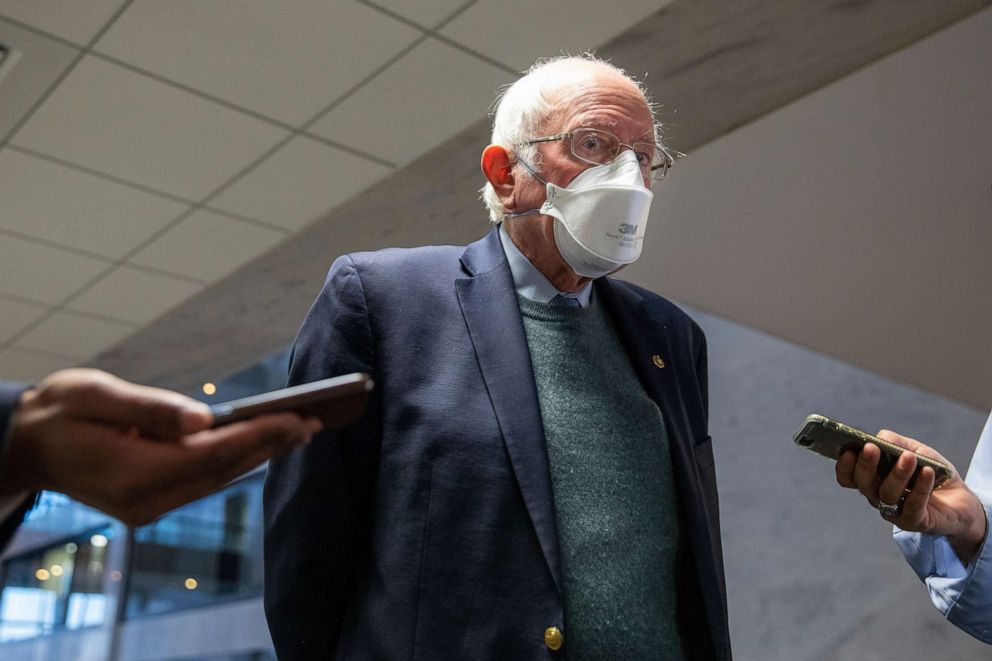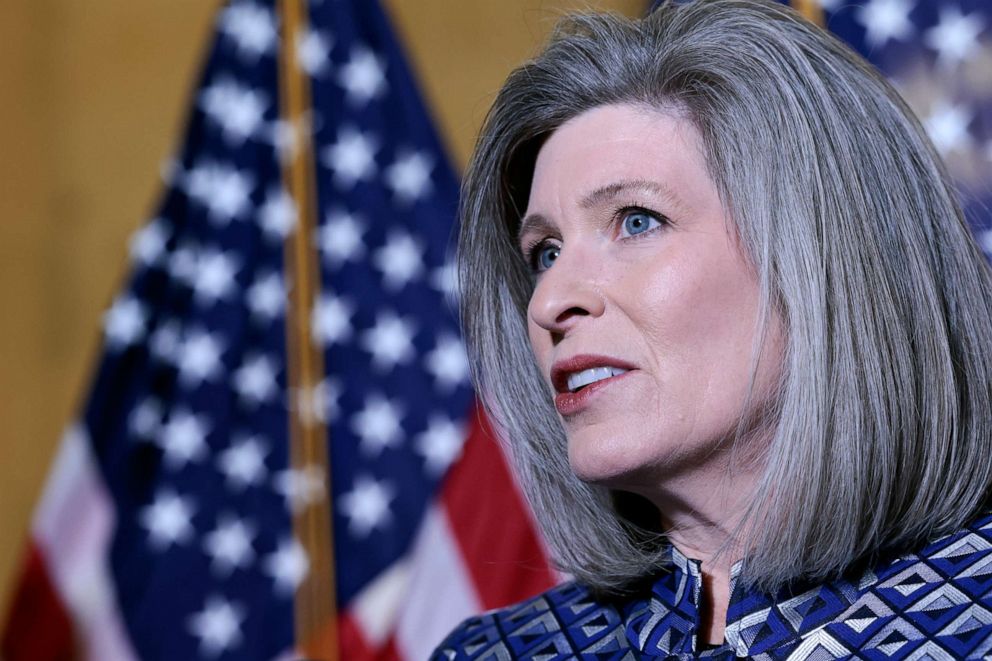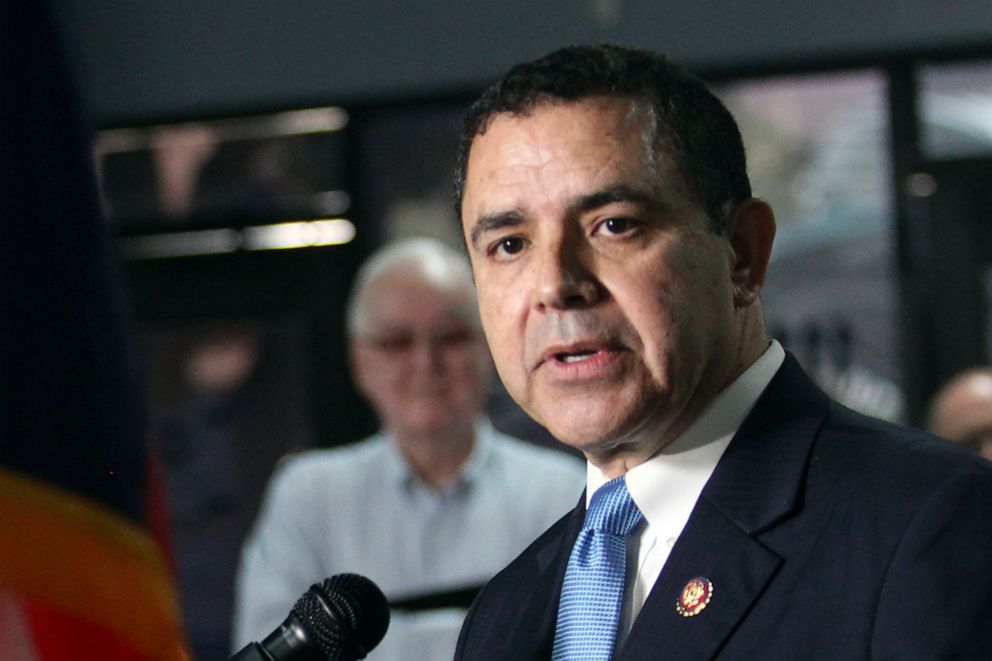Democrats turn on each other as Biden agenda stalls: The Note
Different Democrats see different threats from different foes.
The TAKE with Rick Klein
On this they see eye to eye: President Joe Biden says he's not Sen. Bernie Sanders, and Sanders says he's not Biden.
That may be as far as agreements take the Democratic Party for now -- even though the Biden and Sanders wings of the party have been working in lockstep in recent months. Different Democrats see different threats from different foes, both inside and outside their party, with implications for policy or the lack thereof.
In Arizona, the fallout from Sen. Kyrsten Sinema's vote to keep Senate rules intact now includes a formal censure from the state Democratic executive committee. Her fellow Democrats over the weekend approved that move while citing what they call "her failure to do whatever it takes to ensure the health of our democracy."

Sanders says he is fed up as well, telling CNN on Sunday that Sinema and Sen. Joe Manchin, D-W.Va., "have sabotaged the president's effort to address the needs of working families." Sanders also said that Democrats have "failed politically" over the past six months, and his solution in part is to bring up repeated votes to put his colleagues on the record "and let Manchin and Sinema decide which side they are on."
Biden also has said he wants to break down his Build Back Better bill into "chunks," but his inclination is more toward cutting compromises that all Democratic senators, starting with Manchin, will back. Then there is House Speaker Nancy Pelosi, who is discouraging attacks on fellow Democrats though she is also skeptical of the approach of breaking Build Back Better into component parts.
Toward the end of his news conference last week, Biden said it's clear to him that the public doesn't want a "president-senator": "They want me to be the president and let senators be senators," he said.
Letting the Senate be the Senate hasn't worked of late, though. It has Democrats looking at themselves when it comes to confronting challenges in the second year of Biden's presidency.
The RUNDOWN with Averi Harper
In defense of restrictive voting legislation in Republican-led states, GOP lawmakers often cite even stricter voting procedures in some Democratic states, but the argument is flawed.
On ABC's "This Week," Sen. Joni Ernst, R-Iowa, reiterated the talking point when discussing sweeping voting legislation in her home state with co-anchor Martha Raddatz.
"I will also say that even with those changes in [Iowa's] law, our voting election systems are much more liberal than President Joe Biden's home state of Delaware, as well as Democratic Majority Leader Chuck Schumer's home state of New York," said Ernst.

To properly evaluate if a state is making changes that restrict access to the ballot box, one must look at the history of access in that specific state.
For example, since the passage of the state's sweeping elections law last year, Iowa now only has 20 days of early voting -- down from 29 days. Before the passage of a 2017 voter ID law, the state offered 40 days of early voting. The number of early voting days in other states is a red herring.
The crux of the argument in favor of restrictive voting legislation has been that it makes voting "more secure," though many Republicans have struggled to articulate how exactly these measures do that.
"Well, it is the same level of security," said Ernst when asked by Raddatz how these changes make voting more secure. Ernst later suggested changing the number of early voting days in her home state was part of an effort to keep polling locations staffed.
The TIP with Alisa Wiersema
Rep. Henry Cuellar is continuing with his reelection campaign for Texas' 28th Congressional District against the backdrop of a federal grand jury probe.
As reported by ABC's Mike Levine, federal officials have begun issuing subpoenas, seeking records related to the congressman, his wife and at least one of his campaign staffers. An attorney representing Cuellar, Joshua Berman, told ABC News that "the congressman and his family are fully cooperating" with the investigation. On Wednesday, FBI agents raided Cuellar's home and campaign office.

Those developments, paired with a competitive primary season, appear to be giving progressives hope of seeing an upset in the south Texas contest. Cuellar's top competitor, Jessica Cisneros, came within four points of winning the Democratic primary in 2020 and is heading into 2022 with the backing of heavyweight progressives like Rep. Alexandria Ocasio-Cortez.
Cuellar's political success is largely centered on being one of the few lawmakers publicly willing to work across the aisle. But with the nation's first primary election just weeks away, progressives could look at the race as a bellwether for potential primary upsets elsewhere.
THE PLAYLIST
ABC News' "Start Here" Podcast. Monday's Start Here begins with the economy. ABC's Deirdre Bolton breaks down how COVID-19 is affecting the IRS and disrupting the stock market. Then, ABC's Patrick Reevell details the escalating tensions in Ukraine. And, ABC's Sabina Ghebremedhin describes how an investigation into a young Black woman's death has inspired social media outcry. http://apple.co/2HPocUL
WHAT YOU NEED TO KNOW TODAY
Download the ABC News app and select "The Note" as an item of interest to receive the day's sharpest political analysis.
The Note is a daily ABC News feature that highlights the day's top stories in politics. Please check back Tuesday for the latest.




